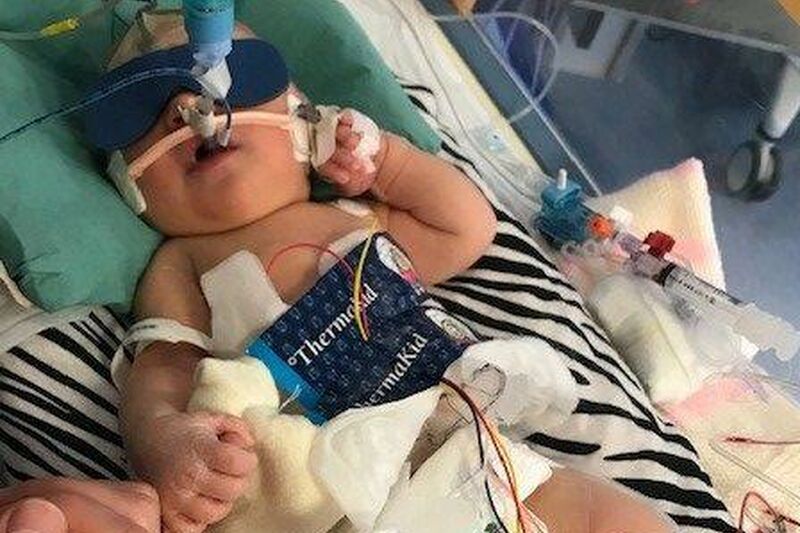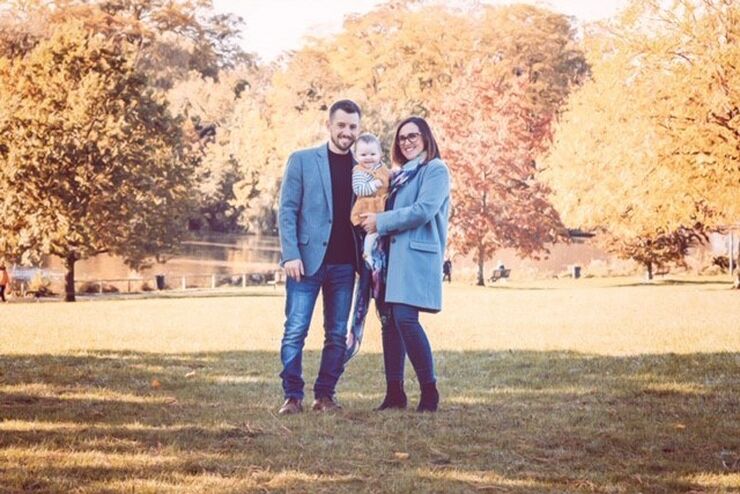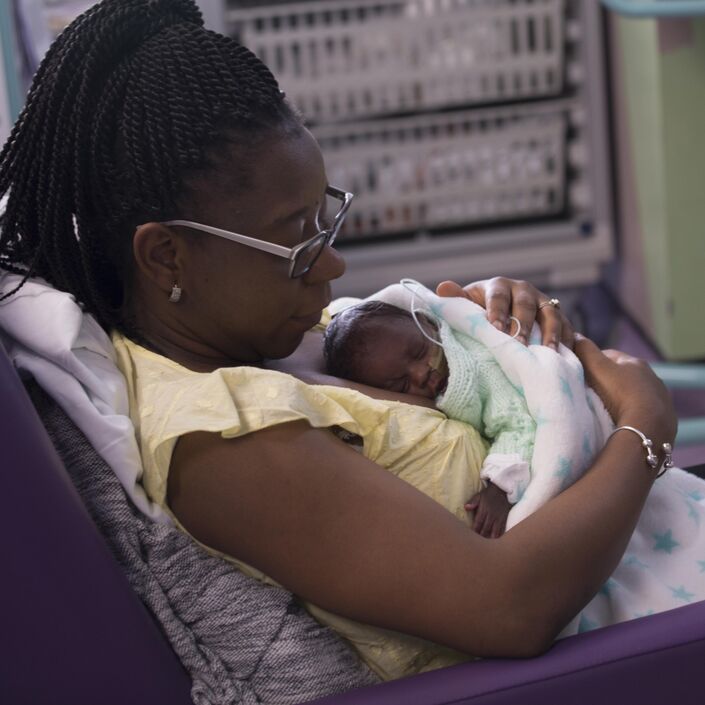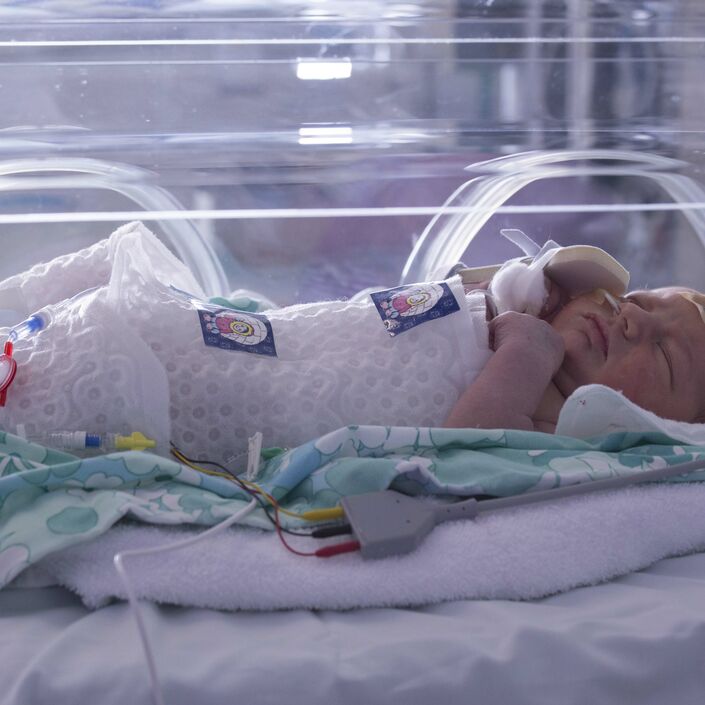Last January, I was heavily pregnant and it couldn’t have gone better. I had enjoyed my pregnancy and was really excited at the prospect of meeting our new baby. But her arrival did not go as smoothly as I expected.
My labour was short, lasting just 4 hours, but upon delivery, it became obvious that there was a problem. The umbilical cord had starved our baby of oxygen and she was born lifeless. She was taken away very quickly to be resuscitated, and she also had a couple of seizures. Only after the crash team had helped her come round did we get to hold her. Then she was taken away again and we were told she needed to be treated for Grade 2 Hypoxic-ischaemic encephalopathy (HIE) at a specialist unit.
That night, she was blue-lighted to St Michael’s hospital in Bristol, but we had to stay put, as there were no beds on the maternity ward in Bristol. We tried to rest as best we could, but we were extremely on edge and very confused. I was discharged from our local hospital the next day and we left with an empty car seat and no baby. It felt like a living nightmare.
We drove to St Michael’s where we saw her rigged up to machines and heavily sedated in the NICU. She was under a strong dose of morphine, so we didn’t hear her cry or see her move, until they brought her round. It was six days before I could give her a proper cuddle or attempt to feed her. All I kept asking was ‘why us’?
It was during this time that I was offered help from a Bliss volunteer, Ellen. She took me to a quiet room and I felt I could just offload to her. She was incredibly personable and I knew she found it hard to hear what I was telling her, as she became emotional as well, but this reassured me that she understood a little of what I was going through. I was so grateful for the short break I had away from our baby’s bedside to talk about what I was going through and from trying to be strong.



